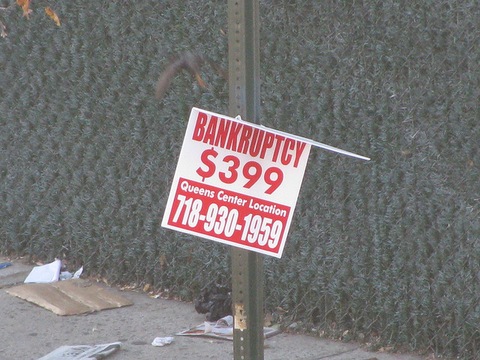Over the years, we’ve learned that for landlords, time is money. A three-day delay to file an eviction can mean losing a month’s rent. Similarly, when a delinquent tenant files bankruptcy, this can cause a two or three month delay, during which time most tenants pay no rent. For a landlord, dealing with a non-paying tenant, and trying to navigate the rules and laws of bankruptcy court, is a challenge. To make things worse, this is not an easy area of law, even for practicing bankruptcy lawyers. “Executory contracts” have been described as the most “psychedelic” law in bankruptcy. Jay Lawrence Westbrook, Article: A Functional Analysis of Executory Contracts, 74 Minn. L. Rev. 227, 228 (1989)
While there are many issues you can handle without a lawyer, this is one in which you are most likely best served by getting professional advice. This blog only scratches the surface. Please call us for a free consultation if you find yourself in this situation.
Examples of executory contracts are long-term purchase agreements; service contracts; settlement agreements; insurance contracts; employment contracts; and construction contracts. When a party to an executory contract files a bankruptcy, an “automatic stay” of all collection and enforcement proceedings goes into effect at the time of filing. The automatic stay prevents eviction proceedings or other legal action – either for possession or for money damages. As a general rule, if this happens, approval from the bankruptcy court is required to proceed in the underlying action. This means moving for relief from stay. But sometimes filing a motion for relief from stay is unnecessary.
Section 365 is the place in the bankruptcy code that provides guidance on these issues. The rationale behind section 365 is to give the debtor and/or the trustee ample opportunity to decide which prepetition contracts and unexpired leases are beneficial to the bankruptcy estate and should be assumed and retained or assigned, and which are detrimental and should be rejected. Different executory contracts and unexpired leases receive different treatment and are subject to different requirements under section 365.
1. Unexpired Residential Real Property Leases and Unexpired Personal Property Leases in Chapter 7: Under section 365(d)(1), if the trustee does not assume or reject an executory contract or lease within 60 days after the order for relief (or within such additional time as the court may fix for cause), then the contract or lease is deemed rejected. This can be helpful to a landlord, especially if the 60 days is approaching.
2. Unexpired Residential Real Property Leases and Unexpired Personal Property Leases in Chapter 11 or 13: Under section 365(d)(2), executory contracts and unexpired residential real property and personal property leases can be assumed or rejected prior to, and including, plan confirmation. However, 365(d)(2) provides that the nondebtor party may request the court to order the trustee of debtor-in-possession either accept or reject within a specified time period.
3. Unexpired Non-Residential Real Property Leases Sections 365(d)(3) and (d)(4) provide extensive protection for nondebtor parties to non-residential real property leases: Upon filing the petition (the original bankruptcy filing), the Code requires the debtor or the trustee in Chapter 7 cases to timely perform all obligations of the lease from that date until the lease is assumed or rejected. If the debtor or trustee fails in that duty, the landlord may seek relief from the automatic stay and proceed with its remedies, which include an action for possession of the premises. The trustee or debtor-in-possession cannot retain possession of the nonresidential real property without paying rent or incurring an administrative expense claim for the payment of rent in the amount called for under the lease that accrues after the order for relief. Section 365(d)(4) provides that if a lease of non-residential real property (where the debtor is the lessee) is not assumed by the earlier of (a) 120 days from the order of relief, or (b) the entry of the confirmation order – it is deemed rejected and the property must be immediately surrendered to the lessor.

